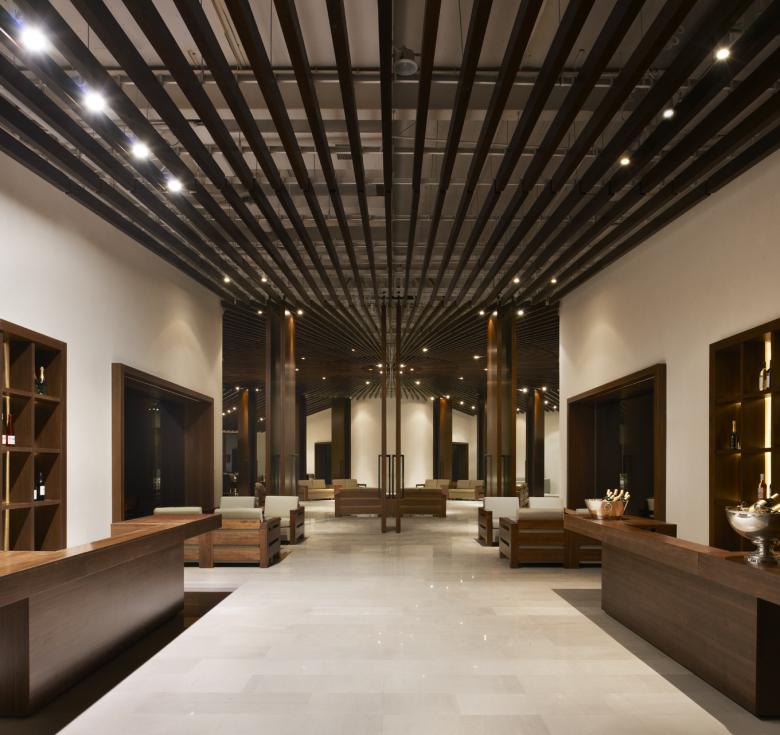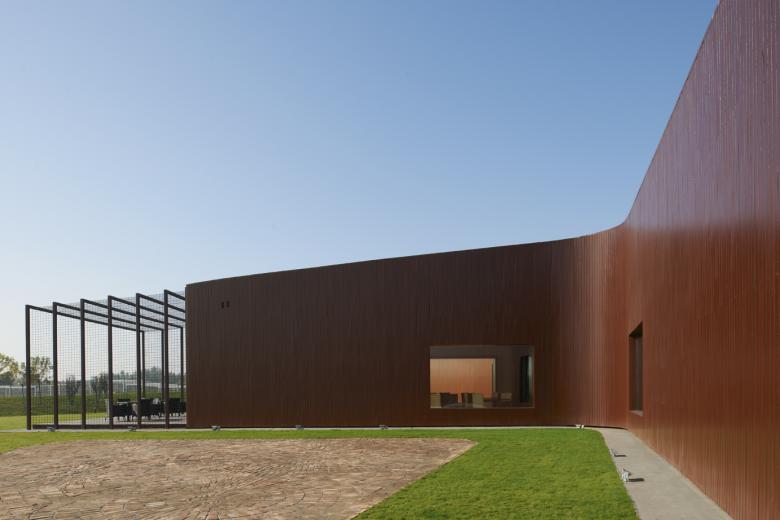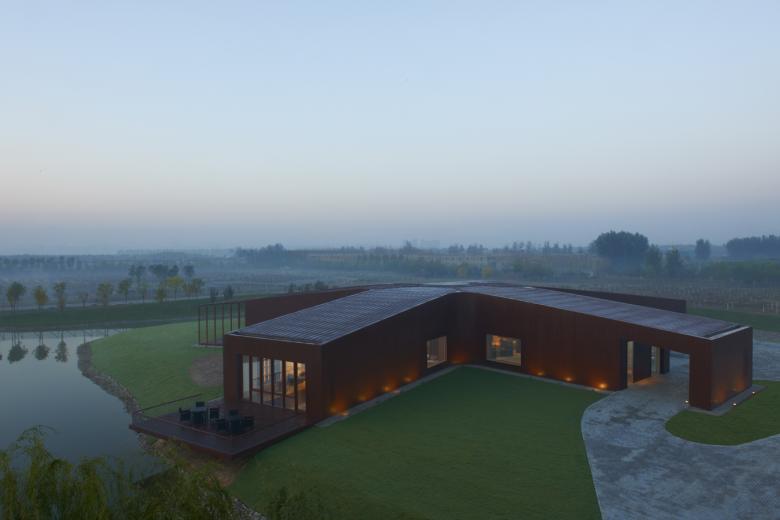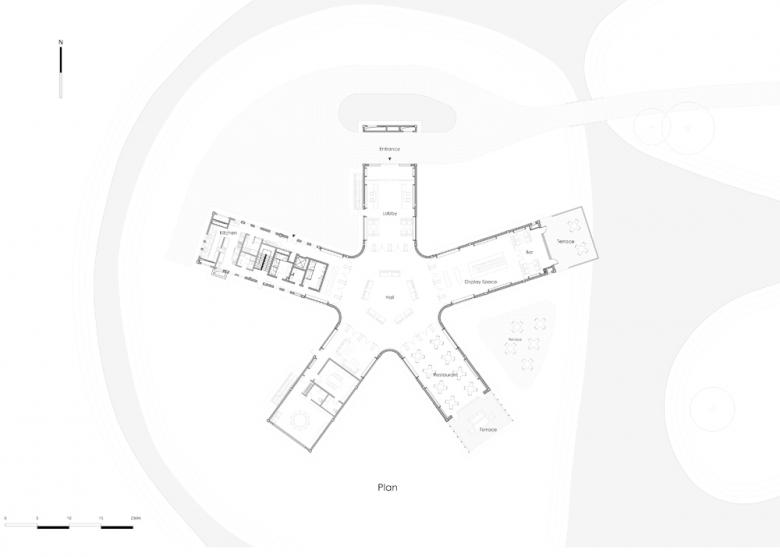The consumption and production of wine is increasing rapidly in China. The market has already become one of the largest in the world. Domestic brands like Great Wall or Dynasty still dominate the sales. However, in the upper price ranges international products from Europe, California or Australia are becoming more and more common in the shops. In the big cities, specialized convenient stores and specialty wine shops have emerged in the last five years.
SAKO Architects present with their ASTERISK building in the fringes of Beijing a new type of sales pavilion, which combines wine showroom, restaurant and underground winery. The pavilion is built on an artificial island surrounded by water, amidst a vineyard. The ground floor space is separated in five different wings, each with its own characteristics.
The building is a perfect setup for the celebration of social events and displays wine as a precious good for the nouveau riches in the Chinese capital. With the extraordinary design, the exquisite materials for the interior and exterior fittings, the pavilion reflects the new awareness of quality of architecture in the context of wine sales.
The ASTERISK building by SAKO Architects adds a new destination on the map of wine experts and lovers of architecture in Beijing.
Eduard Kögel
The guests arrive at the north side on a small driveway in front of the entrance wing. After entering the lobby, two colors dominate the space: variations of broken white for the floor, armchair covers and the walls, warm dark brown for the wooden desks, the wooden ceiling panels and the built-in shelves for the presentation of the bottled wine.
Simple red brick walls, wooden posts and beams, and the display of wine along the walls dominate the cellar. The wine tasting area with elegant furnishing further enhances the refined rustic atmosphere. The exterior wall of the pavilion above ground is clad with Selangan Batu timber, a heavy hardwood.
The market for domestic wine production in joint ventures with foreign companies also has grown, and often the companies reside in imitated French chateaus, Italian fantasy castles or traditional Chinese courtyard houses, which are used for the sale of wine and the presentation of the vineyards. This strange copycat culture is now challenged by a new development.
Simple red brick walls, wooden posts and beams, and the display of wine along the walls dominate the cellar. The wine tasting area with elegant furnishing further enhances the refined rustic atmosphere. The exterior wall of the pavilion above ground is clad with Selangan Batu timber, a heavy hardwood.
By opening all floor to ceiling doors, the five wings enlarge the space with open glass fronts towards the lake and the landscape of the surrounding vineyard. The lobby is in the first wing. The second wing holds the kitchen and toilets. The third wing holds two chambres séparées for private meetings or small groups. The fourth wing is used as the dinning room of the restaurant with a terrace in front. The fifth wing holds a display area, the stairway to the cellar and a bar, also with a terrace in front. The terrace is cantilevered over the water and gives access to a further outdoor space between two wings of the building.


From the lobby the guests move to the central hall, which is lit from the top and serves as a multifunctional space for the distribution of the visitors. This hall can be separated from all five adjoining wings with floor to ceiling doors, made of the same brown timber as all other wooden parts in the building. With closed doors, intimate space is provided for receptions, weddings and other festivities.
The slightly sloping roof on each of the wings further refines the exterior form of the five-wing building. The form is reminiscent of a starfish amidst the vineyard and offers an exclusive environment with direct access to the production of wine.
Plan
Section











